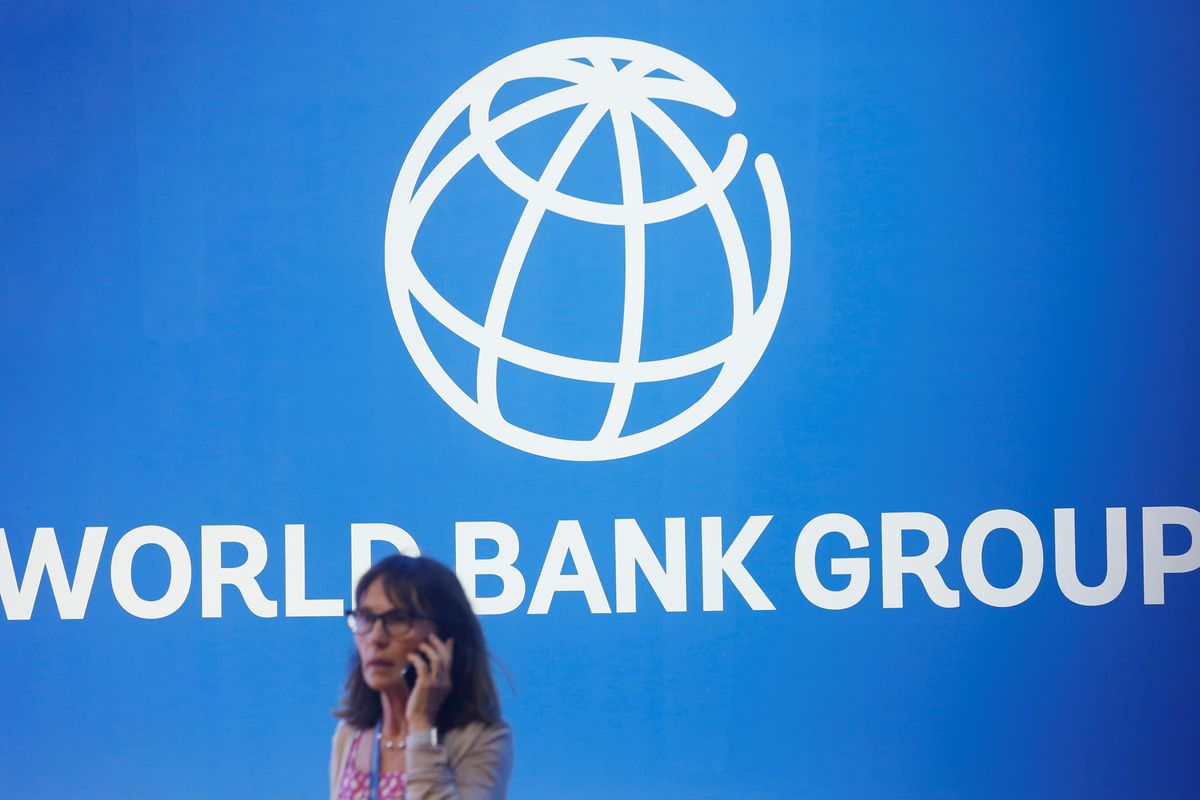World Bank urges Pakistan to accelerate reforms to boost exports, attract investment
New report calls for modernized trade policies, regulatory overhaul, and flexible exchange rate to strengthen competitiveness and foreign investment

Haris Zamir
Business Editor
Experience of almost 33 years where started the journey of financial journalism from Business Recorder in 1992. From 2006 onwards attached with Television Media worked at Sun Tv, Dawn Tv, Geo Tv and Dunya Tv. During the period also worked as a stringer for Bloomberg for seven years and Dow Jones for five years. Also wrote articles for several highly acclaimed periodicals like the Newsline, Pakistan Gulf Economist and Money Matters (The News publications)

The World Bank has called on Pakistan to undertake wide-ranging policy and institutional reforms to revive its flagging export sector, attract foreign investment, and strengthen competitiveness in global markets.
In a new report, the World Bank urged Islamabad to create an enabling environment for export-oriented foreign direct investment (FDI) by removing regulatory bottlenecks, modernizing trade policies, and improving governance across economic institutions.
Improving the business climate
The Bank recommended the establishment of a National Regulatory Delivery Office to accelerate high-profile business environment reforms under the Pakistan Regulatory Modernization Initiative. It also urged Parliament to pass the revised Investment Act, aligning the country’s investment laws with international best practices.
To simplify business operations, the report suggested creating a single national business registry for all firm registrations and lifting restrictions on profit repatriation to make Pakistan more attractive to foreign investors.
It further emphasized the need to fill key leadership vacancies at the Competition Commission of Pakistan and the Competition Appellate Tribunal, while also strengthening the country’s creditor and debtor framework in line with recommendations from the World Bank’s Insolvency and Creditor/Debtor Rights Report.
Tariff and exchange rate reforms
The World Bank advised Pakistan to continue implementing the National Tariff Policy to lower input costs for exporters and reduce anti-export bias. It also called for strengthening the National Tariff Commission’s capacity to handle anti-dumping and countervailing cases and to negotiate tariff reductions with key and emerging trade partners.
On the monetary front, the Bank urged authorities to maintain a flexible exchange rate to support export competitiveness. It recommended allowing a deep and liquid interbank market without direct intervention by the State Bank of Pakistan (SBP), publishing detailed interbank data, and phasing out ad hoc measures so that the exchange rate reflects genuine market dynamics.
Enhancing trade finance and facilitation
To expand access to trade finance, the World Bank highlighted the need to fully operationalize the EXIM Bank of Pakistan through the appointment of a chief executive officer and by strengthening its balance sheet. The report called for expanding the bank’s capacity to provide innovative financial instruments and prioritizing financing for new export ventures and sectors.
It also urged full implementation of the World Trade Organization’s Trade Facilitation Agreement, as well as the Federal Board of Revenue’s Transformation Plan. The World Bank said the Export Facilitation Scheme (EFS) should be fully digitized, refund backlogs cleared, and greater awareness raised among small and medium enterprises (SMEs).
Deepening trade ties
To help exporters meet evolving global market requirements, the Bank proposed developing a revised National Quality Policy implementation plan and establishing a Technical Regulation Coordination Office to ensure compliance with international standards.
The report also recommended upgrading existing preferential trade agreements (PTAs) to include services, investment, and digital trade, while enhancing Pakistan’s negotiation capacity and monitoring mechanisms. It encouraged Islamabad to explore trade agreements with non-traditional markets, including Sub-Saharan Africa and Latin America, through its network of trade attachés.
Addressing energy and digital infrastructure gaps
Recognizing infrastructure bottlenecks as a major constraint, the World Bank stressed the need to reform the energy and digital sectors to support export growth. It called for cost-reduction measures through timely tariff adjustments, improved management of power distribution companies (DISCOs), and greater grid reliability.
In the digital domain, the Bank urged faster implementation of the National Fiberization Plan, new data governance regulations, and a stronger Pakistan Software Export Board to promote international IT services and streamline export procedures.
The World Bank underscored that boosting exports is critical to Pakistan’s long-term economic sustainability, noting that the country’s export base remains narrow and vulnerable to global shocks. By implementing the proposed reforms, the Bank said, Pakistan could enhance competitiveness, attract high-quality FDI, and position itself for sustained growth in global trade.







Comments
See what people are discussing